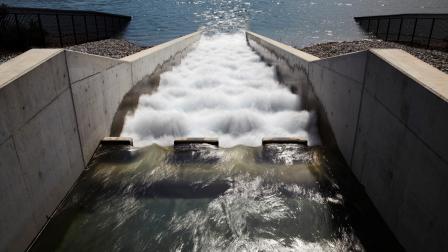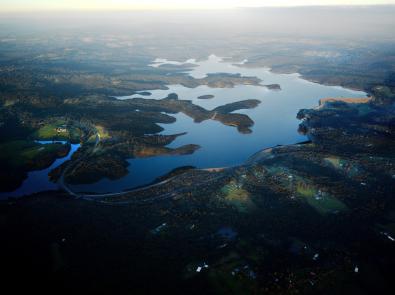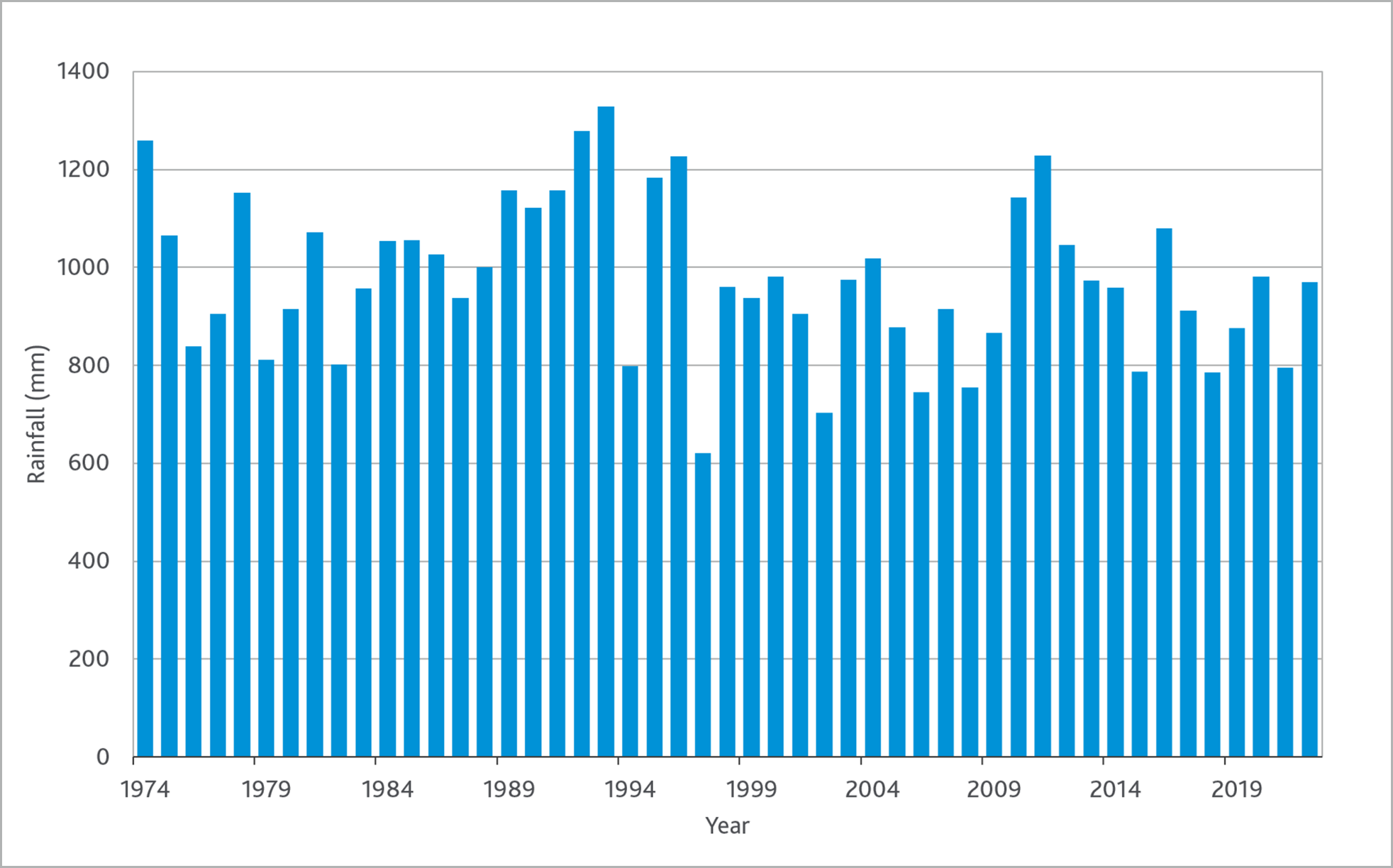Cardinia is Melbourne’s second-largest reservoir, and can transfer water to most of Melbourne. It receives water from Silvan Reservoir, as well as the Victorian Desalination Plant (when in operation).
The water from Cardinia Reservoir flows out to service reservoirs in the south-eastern suburbs, typically from Dandenong to Dromana. Water can also be pumped to Silvan Reservoir, enabling desalinated water to be supplied to other parts of Melbourne and surrounds.
Cardinia Reservoir also has the capacity to transfer water to the areas serviced by Westernport Water and South Gippsland Water.
Key facts
The dam at Cardinia Reservoir is a rolled earthfill and rockfill embankment, and was completed in 1973.
- Catchment area: 2,800 hectares (off-stream storage)
- Surface area: 1,295 hectares
- Total capacity: 286,911 megalitres
- Dam height: 85 metres
- Dam length: 1,542 metres (main bank only, saddle dams are an extra 2,841 metres)
Water catchment protection and access
Cardinia Reservoir is an off-stream reservoir, receiving water from on-stream reservoirs and other sources. There is:
- no entry into the protected water supply catchment, with offenders subject to prosecution under the Water Act 1989 (Vic)
- entry permitted to Cardinia Reservoir Park, Aura Vale Lake and Dam Wall Walking Track, managed by Parks Victoria.
Melbourne Water continually reviews our protected catchments to determine if more areas can be opened to the public. While this would allow more people to enjoy Victoria’s vast natural spaces, it must be balanced with protecting our precious drinking water for the safety of our community.
Rainfall over the years
View highlights from our historical rainfall data for Cardinia Reservoir, including annual rainfall, monthly averages, and the wettest and driest years by month.
Live rainfall and water storage data
Get the latest information on each of our 10 major reservoirs, including daily water storage levels and hourly rainfall and river level data.
Annual rainfall at Cardinia (1974-2022)
Monthly rainfall records (mm)
Last updated: January 2023
| Month | Wettest | Driest | Average |
|---|---|---|---|
| January | 136.2 (1991) | 7.0 (2013) | 62.4 |
| February | 246.4 (2011) | 2.0 (2009) | 54.9 |
| March | 120.2 (1984) | 16.8 (1986) | 60.4 |
| April | 181.2 (1974) | 19.2 (2019) | 79.3 |
| May | 168.4 (2000) | 24.4 (2005) | 82.3 |
| June | 177.4 (1991) | 17.2 (2006) | 87.7 |
| July | 171.8 (1996) | 35.0 (1982) | 86.6 |
| August | 174.4 (1975) | 32.2 (1982) | 97.6 |
| September | 215.4 (1992) | 38.2 (2008) | 98.0 |
| October | 204.0 (1989) | 20.6 (2015) | 95.9 |
| November | 190.6 (1992) | 19.2 (1982) | 90.2 |
| December | 213.0 (1993) | 11.8 (1997) | 82.3 |
| Annual total | 1328.4 (1993) | 620.4 (1997) | 977.7 |
You may also like...
Our water supply system
Melbourne has some of the highest-quality drinking water in the world. Learn how it makes its long journey to your tap.

Desalination data
View daily desalinated water data, to see how much is contributed to our water storage levels when the desalination plant is in use.


